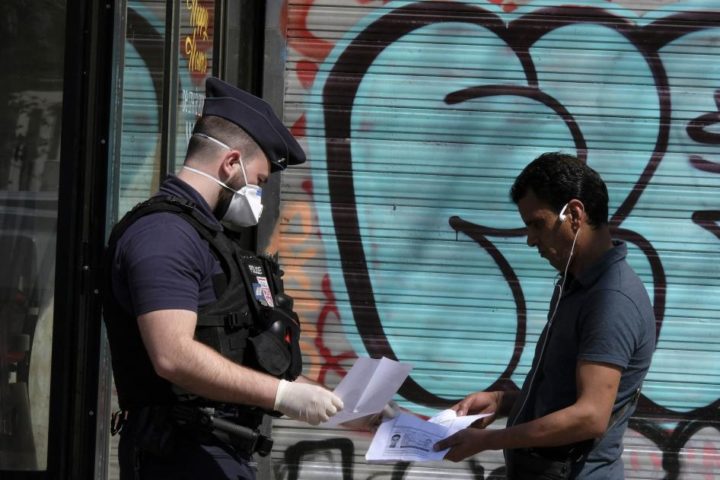Take Concrete Steps to End Biased Police Behavior, 24 Groups Say
The French government should take urgent and concrete steps to end discriminatory police stops, 24 local, national, and international organizations said on Wednesday in an open letter sent to French authorities.
In response to the new coronavirus pandemic, France adopted confinement measures on March 17, 2020 and declared a state of health emergency that went into effect on March 24 throughout the country. Under the emergency law, failure to respect lockdown rules is subject to a €135 fine (US$146), while repeated breaches are punishable by up to six months in prison and a €3,750 (US$4,065) fine.
Since the beginning of the lockdown, many accounts, some corroborated by videos posted on social networks, reveal police stops that appear abusive, violent, and discriminatory, sometimes accompanied by racist insults.
Available official data, as well as information published in the media, also indicate a considerable concentration of police stops to enforce lockdown measures in “quartiers populaires” – working-class neighborhoods with a high number of visible minority residents and, for example, a fine rate three times as high as the national average in Seine-Saint-Denis, the poorest neighborhood of Metropolitan France. The data and accounts suggest discriminatory behavior against citizens depending on where they live and a disproportionate impact of fines on socially and economically disadvantaged households, the organizations said.
Discriminatory and abusive behavior during police checks is not new in France. For years, organizations and other independent institutions have criticized ethnic profiling during police identity checks, sometimes accompanied by racist comments, particularly against young black and Arab men, in France’s “quartiers populaires.” On March 27, 22 organizations, including Human Rights Watch, said that French authorities should ensure that policing and control operations in the fight against the Covid-19 epidemic do not give rise to abuses. In a forthcoming report Human Rights Watch documents the persistence of these illegal practices.
To access the letter and the recommendations from the 24 organizations, click here.










